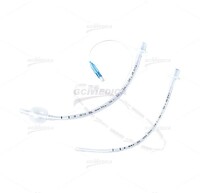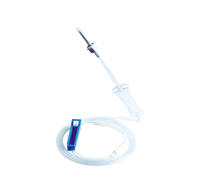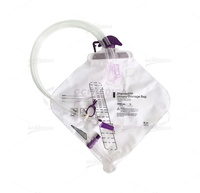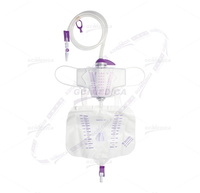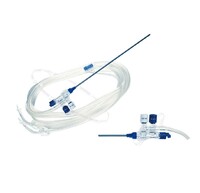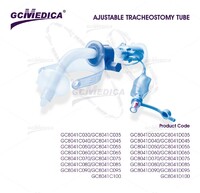Standard Endotracheal Tube
Specifications
The Outstanding Features of Standard Endotracheal Tubes
Endotracheal tubes are essential medical devices used in various procedures to secure and maintain a patient’s airway. Standard endotracheal tubes offer a range of features that ensure optimal
performance and patient safety. In this article, we will explore the remarkable characteristics of these tubes, highlighting their benefits and advantages.
1. 15mm Standard Connector: Ensuring Compatibility
One of the key features of standard endotracheal tubes is the inclusion of a 15mm standard connector. This connector plays a vital role in ensuring compatibility with circuit connectors, allowing
for seamless integration into the respiratory system. By utilizing this standardized connector, healthcare professionals can easily connect the tube to the appropriate equipment, facilitating
efficient ventilation and oxygenation.
2. Smooth Tip for Atraumatic Intubations
The smooth tip design of standard endotracheal tubes is specifically engineered to aid in atraumatic intubations. This means that during the insertion process, the smooth tip minimizes the risk of
tissue damage or trauma to the patient’s airway. By reducing the potential for complications, healthcare providers can enhance patient comfort and safety during intubation procedures.
3. Full-Length Radio-Opaque Line: Ensuring Accurate Tube Placement
Accurate tube placement is crucial in endotracheal intubation. Standard endotracheal tubes address this concern by incorporating a full-length radio-opaque line. This line serves as a visual
indicator, allowing healthcare professionals to assess the exact location of the tube within the patient’s airway. By providing a clear reference point, the radio-opaque line assists in confirming
correct tube positioning, minimizing the risk of misplacement.
4. Radiopaque X-Ray Line: Enhancing Visibility
In addition to the full-length radio-opaque line, standard endotracheal tubes also feature a radiopaque x-ray line. This line further enhances visibility during imaging procedures, such as X-rays.
By being radiopaque, the line appears clearly on X-ray images, enabling healthcare providers to accurately assess the tube’s position and make any necessary adjustments. This feature ensures that
the tube remains in the optimal position, promoting effective ventilation and patient well-being.
5. Self-Closing Valve with Luer-Lock Syringe Attachment Piece
Standard endotracheal tubes are equipped with a self-closing valve, complemented by a Luer-lock syringe attachment piece. This combination allows for easy and secure attachment of a syringe,
facilitating various procedures such as suctioning or medication administration. The self-closing valve ensures that the tube remains closed when not in use, preventing the entry of unwanted
substances into the patient’s airway.
6. Murphy Eye: An Added Safety Feature
Another notable feature of standard endotracheal tubes is the inclusion of a Murphy eye. This small, lateral opening located just above the cuff serves as an additional safety mechanism. In the
event of an obstruction or blockage of the main opening, the Murphy eye provides an alternative pathway for ventilation, ensuring the patient’s airway remains open and functional.
Standard endotracheal tubes offer a range of exceptional features that contribute to their effectiveness and safety. From the 15mm standard connector to the Murphy eye, each characteristic is
designed to enhance patient care and optimize airway management. By utilizing these advanced features, healthcare professionals can confidently perform intubations, ensuring the best possible
outcomes for their patients.
As a medical device enterprise, we can provide kinds of related products for sale, if you have needs, please contact us.
- Country: China (Mainland)
- Business Type: Manufacturer
- Founded Year: 2002
- Address: 18 Xinjin Road, Xinwu Industrial Zone, Wuxi, China
- Contact: Gc medica

